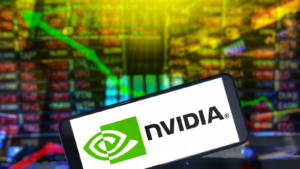Cloud providers continue to integrate AI functionality within their respective cloud platforms. These integrations will lead to automation, self maintenance and increased data analysis capabilities. It all suggests that cloud AI stocks will continue to thrive throughout 2024.
I believe that the dominant firms in the space will continue to thrive in 2024. While this probably won’t surprise many investors, it is important to understand. Many investors continue to wait for the floor to fall out from the big AI stocks.
However, the continued growth of cloud AI in particular is one reason to believe otherwise. Let’s look at three such AI cloud stocks that are shaping up to be misfires in 2024.
Amazon (AMZN)

Amazon (NASDAQ:AMZN) is an e-commerce stock that also happens to operate the world’s most adopted cloud platform. It’s that latter business that we will be discussing today.
Amazon provides hundreds of AI-enabled cloud services from multiple datacenters located globally. The company is gearing up to invest as much as $150 billion in datacenters over the next 15 years. The company is undertaking those efforts explicitly to pursue AI growth.
Amazon currently holds twice as much market share as its next leading competitor, discussed immediately below. The investment is being undertaken partly to preserve that dominant position. It will also satisfy a projected rise in demand for AI applications and other services.
This move is a reaction to moves made by Amazon’s primary competitor. While Amazon’s investment in datacenters decreased 2% in 2023, Microsoft’s spiked by 50%.
Microsoft (MSFT)

Microsoft (NASDAQ:MSFT), as just mentioned, ramped up its datacenter investment by 50% in 2023. That’s a strong indication of just how serious the firm is about the AI opportunity as it relates to cloud. It’s also an excellent reason to consider MSFT stock moving forward.
Microsoft has made a massive investment into AI and has become synonymous with the emergent AI opportunity. Investors everywhere are well aware of its position and investment into firms including OpenAI.
Microsoft was not satisfied to simply increase its datacenter investment by 50% in 2023. 2024 has started off the same. The company recently invested an additional $2.9 billion to expand AI cloud infrastructure in Japan.
Investors should expect more of the same from Microsoft as it relates to cloud strength. The company saw cloud revenues increase by 24% in Q4, reaching $33.7 billion. The company is leveraging AI at every point within its tech stack, per the most recent earnings release. Microsoft should continue to thrive as AI booms moving forward.
Nvidia (NVDA)

Nvidia (NASDAQ:NVDA) stock has exploded over the last year. No one needs to be told that its chips are the most demanded for AI applications. Likewise, most are well aware that many of those chips are being applied to datacenters.
Major cloud providers have been the primary buyers of Nvidia’s chips over that period. Firms like Microsoft and Meta (NASDAQ:META) have bought hundreds of thousands of Nvidia’s GPUs and integrated them into their cloud infrastructure. Major enterprises then purchase cloud services from those providers in an effort to capture returns from the AI opportunity.
That’s generally how the story has gone for Nvidia, and is one of the primary reasons for its ascendance.
Nvidia is expected to continue dominating the space in 2024. Its new Blackwell chips are expected to bring more tangible applications of AI to market. That should be particularly welcome given that some applications, such as Microsoft’s CoPilot, have failed to impress in certain cases.
On the date of publication, Alex Sirois did not have (either directly or indirectly) any positions in the securities mentioned in this article. The opinions expressed in this article are those of the writer, subject to the InvestorPlace.com Publishing Guidelines.
Alex Sirois is a freelance contributor to InvestorPlace whose personal stock investing style is focused on long-term, buy-and-hold, wealth-building stock picks. Having worked in several industries from e-commerce to translation to education and utilizing his MBA from George Washington University, he brings a diverse set of skills through which he filters his writing.
